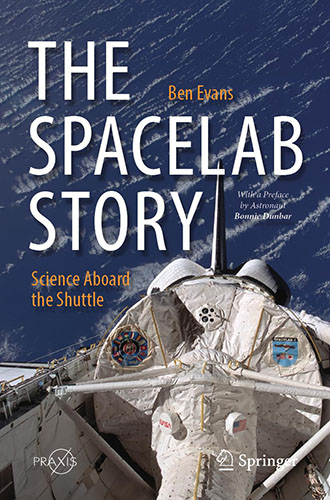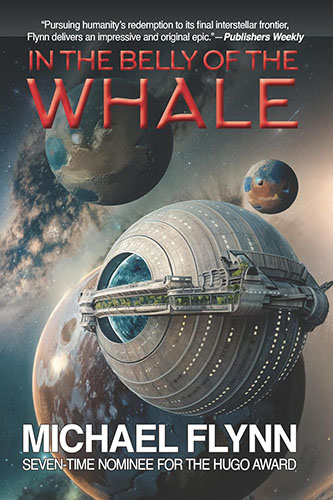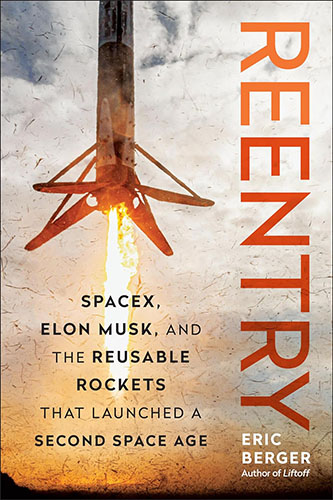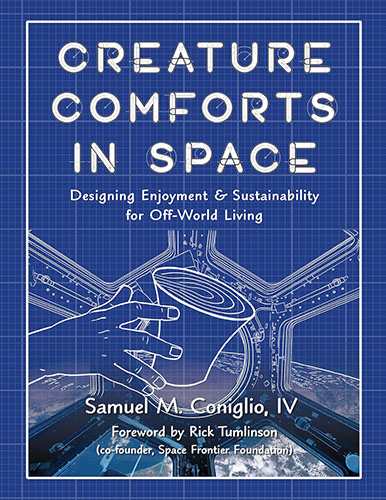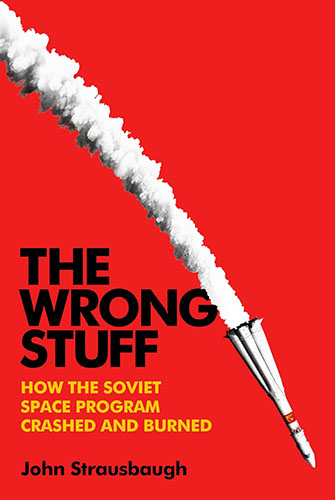Category: Nonfiction
Reviewed by: Mark Lardas
Title: The Spacelab Story: Science Aboard the Shuttle
Author: Ben Evans
Format: Paperback/Kindle
Pages: 455
Publisher: Springer
Date: April 2024
Retail Price: $37.99/$34.99
ISBN: 978-3031534485
Find this book
When it started in 1973, what became the Spacelab program was the first example of international partnership in space. It predated the European Space Agency (ESA), being one of the drivers that led to consolidation of existing European space organizations into ESA. During missions between 1983 and 1998, Spacelab hardware gave NASA and the world an orbiting science laboratory.
The Spacelab Story: Science Aboard the Shuttle tells the full Spacelab story from its inception in the early 1970s until its conclusion at the end of the 20th Century.
Author Ben Evans opens by exploring the origins of Spacelab and the pioneering role it played in international space cooperation. He reveals the turf fights that took place in defining the roles the participants would play. These included Johnson Space Center which led NASA’s manned space program, Marshall Spaceflight Center which became the Spacelab Program Office (over JSC objections), and the European partners that built the hardware and provided scientists for flights. These struggles ultimately defined processes used today in international programs, including Lunar Gateway.
He presents the different elements of the Spacelab program. This included the iconic manned habitat in the Shuttle payload bay most often associated with Spacelab, and the various unmanned science pallets which could also fly in the payload bay to perform important science experiments.
He next examines the difficult path to flight, revealing the difficulties involved in creating both the Spacelab hardware and the Shuttle itself. Neither had an easy path to first flight, and Evans shows how NASA finally launched the Shuttle and tested different elements of the Spacelab hardware during the first Shuttle flight.
The book’s heart consists of chapters that describe the 22 Shuttle missions which flew Spacelab elements and the science done during those missions. Spacelab supported a wide range of science during its many years of flight. This included life science, minerology, materials science, space science, astronomy, and earth science. Materials’ processing in microgravity environment was pioneered aboard Spacelab. The Tethered Satellite System was tested during Spacelab missions. Much of the early space medicine research was done by the program. Evans looks at all of these.
He also evaluates the program’s successes and failures. He looks at European expectations for the program and their disappointment at not being able to fly as many payload specialists as they had been led to expect when they signed on to it. He also shows the impact of the Challenger catastrophe on Spacelab. It led to delay of all subsequent Spacelab flights and cancellation of several planned missions. Like the Shuttle itself, Spacelab never delivered its full potential.
The Spacelab Story is as comprehensive a book as can be written in a one-volume work on Spacelab. It covers every mission and its accomplishments. More than that, the book explores the personalities involved—the people that flew and supported the missions. It explores the politics involved and the legacy of the program. It is simultaneously a story about science, people, and the promise of space. While a long read, it is rewarding.
© 2024 Mark Lardas

